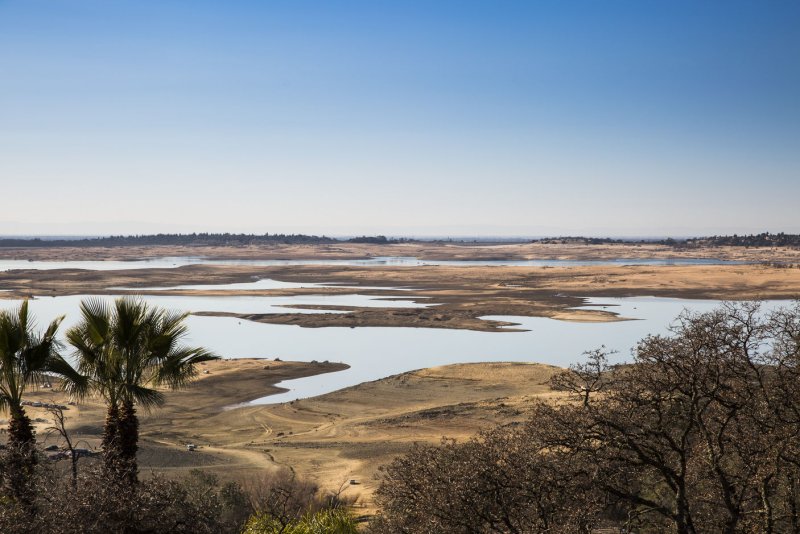Folsom Lake experienced historic low water levels, in Folsom, California, in early 2014. California Governor Jerry Brown declared a statewide drought in January. UPI/Ken James |
License Photo
AARHUS, Denmark, July 29 (UPI) -- Two new studies suggest a worldwide water shortage is less than three decades away, and that at least 30 to 40 percent of the globe will be struggling to meet supply demands by 2020.
The projections are based on current usage rates and the increasing reliance upon water for hydroelectricity and cooling more traditional power plants. As the need for water continues to grow, both for quenching the thirst of growing populations and as a source of energy, pressure on finite resources will eventually instigate an shortage.
Researchers with Aarhus University in Denmark, as well as analysts at the Vermont Law School and the Virginia-based non profit CNA Corporation, predict these imbalances will beset more than a third of the globe by 2020, and virtually all of it by 2040. The studies suggest previous water shortage predictions fail to account for the vast amounts of water it takes cool much of the world's power systems -- coal, gas and nuclear power plants.
Researchers suggest many electricity producers don't even keep track of the vast amounts of water used in cooling power systems.
"It's a huge problem that the electricity sector do not even realize how much water they actually consume," explained Benjamin Sovacool, a professor at Aarhus University. "And together with the fact that we do not have unlimited water resources, it could lead to a serious crisis if nobody acts on it soon."
The researchers came to their predictions by comparing and contrasting a number of studies that looked at water usage in France, the United States, China and India.
Sovacool and colleagues suggest world leaders act fast to address these impending shortages by: improving energy efficiency; developing more efficient cooling cycles; tracking water use by power plants; abandoning fossil fuel facilities in water-stressed regions; and boosting investments in wind and solar energy.
"If we keep doing business as usual, we are facing an insurmountable water shortage -- even if water was free, because it's not a matter of the price," Sovacool added. "There will no water by 2040 if we keep doing what we're doing today. There's no time to waste. We need to act now."















